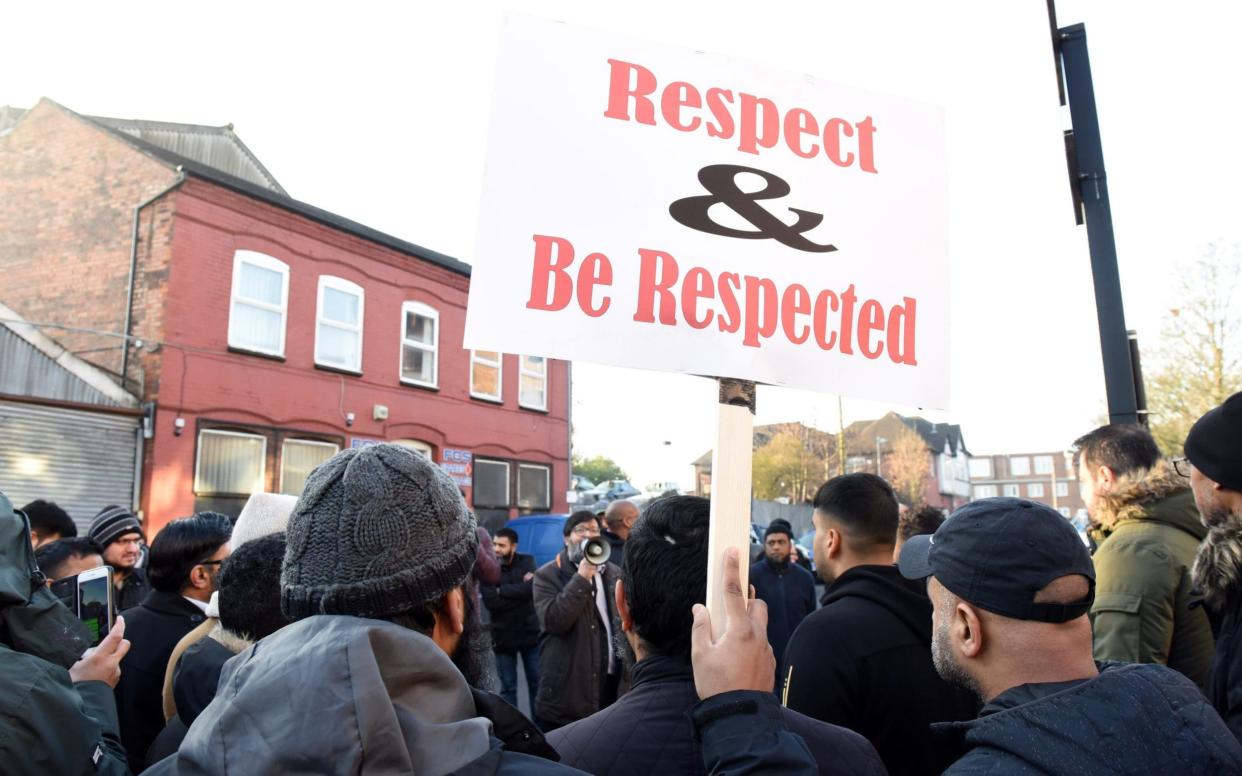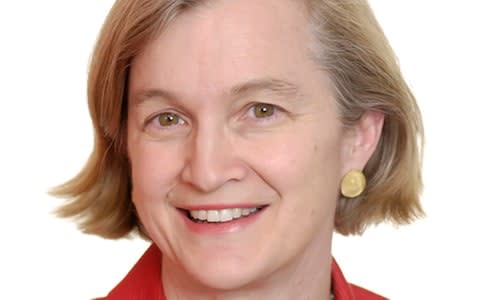Pupils should be taught that some children have 'two mummies or two daddies', Ofsted chief says

Pupils should be taught that some children have “two mummies or two daddies”, the head of Ofsted has said, following protests by Muslim parents at a school in Birmingham.
Amanda Spielman’s intervention comes amid a row at Parkfield Community School in Birmingham, where parents launched a petition against the primary school’s "No Outsiders" programme where children are taught about same sex couples and gender identity.
She said that parents need to learn that “we don’t all get our way” and must accept that “we can’t have 100 per cent of what we want”.
Hundreds of parents have protested outside the school in recent weeks, saying that teaching children about LGBT rights and homophobia contradicts their Islamic faith.
But Ms Spielman, the chief inspector of schools in England, has weighed in to support the school, saying that children need to be taught about same sex relationships irrespective of their religious background.
“It’s about making sure they [children] know just enough to know that some people prefer not to get married to somebody of the opposite sex and that sometimes there are families that have two mummies or two daddies,” she told the BBC.
“It's about making sure that children who do happen to realise that they themselves may not fit a conventional pattern know that they're not bad or ill.”

Ms Spielman said if there is a disagreement, parents must engage in “rational discussion” and “proper conversation” rather than protest to establish a “middle ground”.
She went on to explain how even faith schools, where their religion does not permit same sex relationships, manage to fulfil their requirements under the equalities act in a “sensitive and careful way”.
“The essence of democracy is that we don’t all get our way. The essence of democracy is that we accept majority decision,” she said.
“There will always be things that we don’t like which if we were running the country we wouldn’t do. That is the very essence of it, accepting that we can’t have 100 per cent of what we want.”
Andrew Moffat, the assistant head at Parkfield Community School, designed the "No Outsiders" programme which aims to teach children about issues such as gender, identity and sexual orientation during Relationship and Sex Education (RSE) lessons.
Mr Moffat, who has been awarded an MBE for services to equality and diversity in education, said he has received threats from parents who oppose the course.
While parents are allowed to withdraw their children from RSE lessons, they are only permitted to do so for the sex education part, and not for relationship education.
Learning about same sex couples would be part of the latter section, meaning parents who disagree with this are not able to remove their children from classes.
Fatima Shah, who has taken her 10-year-old daughter out of the school, has said that the lessons were “inappropriate”
"Children are being told it's OK to be gay yet 98 per cent of children at this school are Muslim,” she told Birmingham Live.
“It's a Muslim community. I've taken my daughter out and other parents have too. Enough is enough."
The school has defended the programme, which they said had been fully explained to parents. They added: "No Outsiders allows us to raise awareness of these differences so that children are able to tolerate and accept differences in our society."
A Department for Education spokesperson said: “Parkfield Community School is an outstanding school with a leadership team and staff committed to ensuring pupils are prepared for life in modern Britain.
“The Department trusts headteachers and teachers to develop a curriculum and whole school approach that ensures personal as well as academic development of their pupils.”

 Yahoo News
Yahoo News 
